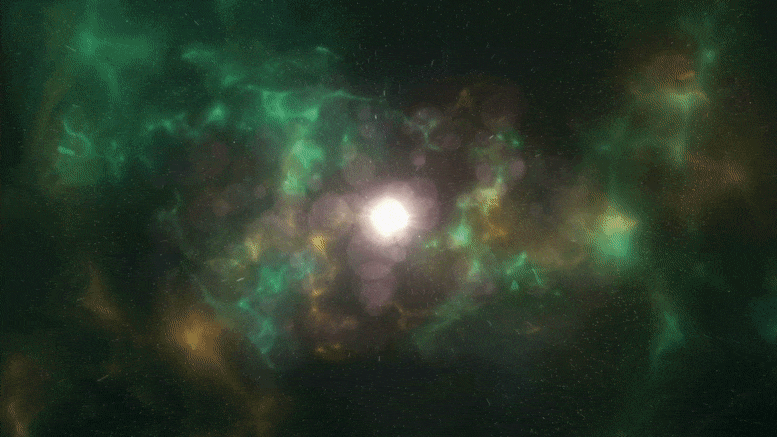The very first moments of the Universe can be reconstructed mathematically even though they cannot be observed directly. Physicists from the Universities of Göttingen and Auckland (New Zealand) have greatly improved the ability of complex computer simulations to describe this early epoch. They discovered that a complex network of structures can form in the first trillionth of a second after the Big Bang. The behavior of these objects mimics the distribution of galaxies in today’s Universe. In contrast to today, however, these primordial structures are microscopically small. Typical clumps have masses of only a few grams and fit into volumes much smaller than present-day elementary particles. The results of the study have been published in the journal Physical Review D.
